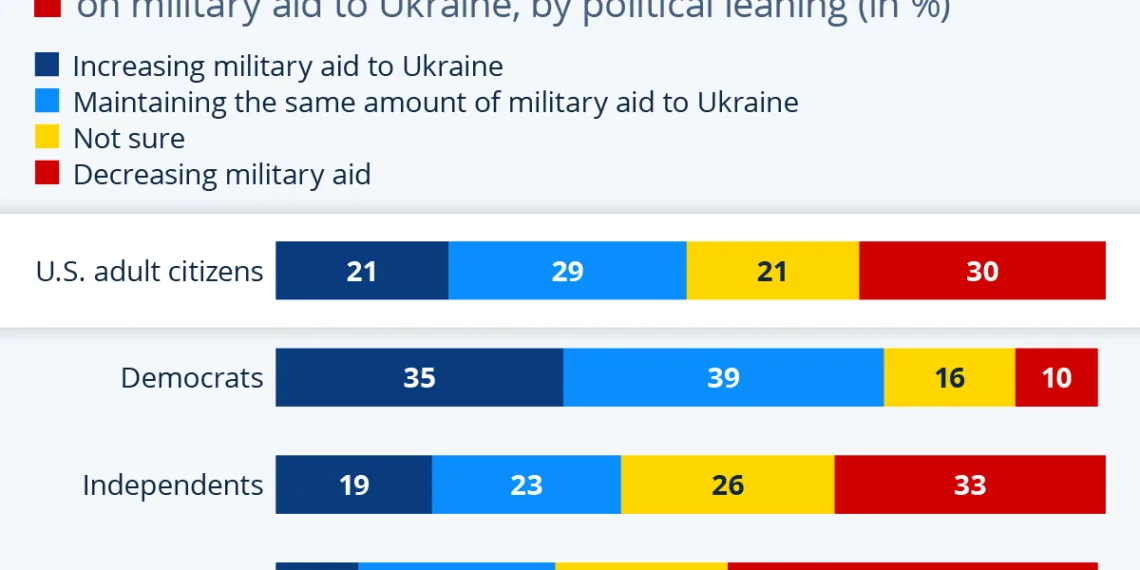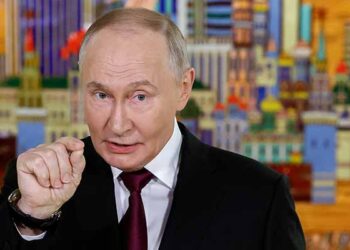Select Language:
Understanding American Perspectives on Military Aid to Ukraine
In the context of ongoing geopolitical tensions following Russia’s invasion of Ukraine, American public opinion on military aid to the Eastern European nation has become increasingly relevant. A recent survey conducted by YouGov sheds light on how U.S. adults view military support for Ukraine, revealing sharp divisions based on political affiliation and differing perspectives on the conflict’s potential outcomes.
Current Opinions on Military Aid
Survey Insights
According to the YouGov survey, only 20% of U.S. adults believe that the United States should increase its military aid to Ukraine. This figure suggests a notable hesitation among the broader population about escalating involvement in the conflict. In contrast, a significant 30% of respondents advocate for a decrease in aid, highlighting a substantial faction that believes the U.S. should reconsider its current level of commitment to Ukraine.
Political Party Affiliation and Its Impact
Democratic Views
The responses to military aid become even more pronounced when broken down by party affiliation. Among Democrats, a considerable 74% express support for either maintaining or increasing U.S. military aid to Ukraine. This strong consensus reflects a party aligned with internationalist policies and a tendency to support Ukraine’s sovereignty against aggression.
Republican Perspectives
On the other end of the spectrum, Republican respondents present a starkly different view. While 35% support maintaining aid, a striking 45% believe that the U.S. ought to scale down its military assistance. The division within the Republican base underscores a growing isolationist sentiment that resonates with a significant portion of conservative voters. This divergence in opinions raises questions about the future of U.S. foreign policy and the potential for bipartisan support in times of crisis.
War Outcomes According to U.S. Citizens
Perceptions of Victory
The survey also sought to gauge public sentiment regarding the likely victor of the ongoing conflict. Interestingly, 29% of respondents predict that Russia will emerge victorious, while only 13% hold the belief that Ukraine will achieve victory. These statistics reveal a pessimistic outlook among the public regarding Ukraine’s prospects, particularly in light of the sustained military and economic support they have received thus far.
Uncertainty and Equal Likelihoods
Further complicating the public opinion landscape, 19% of survey participants feel that both nations stand an equal chance of winning the war. Additionally, a significant 39% of respondents admitted they did not know which side would secure victory. This uncertainty may stem from the complex nature of the conflict, which has seen irregular shifts in momentum and ongoing negotiations that leave the outcome shrouded in ambiguity.
Summary of Key Findings
- 20% of Americans advocate for an increase in military aid to Ukraine.
- 30% believe the U.S. should decrease its support.
- 74% of Democrats favor maintaining or increasing aid, contrasted with only 10% of Republicans.
- 29% predict a Russian victory, while only 13% foresee a Ukrainian win.
- A significant number remain uncertain regarding the war’s outcome, highlighting the complexity and evolving nature of the situation.
Through these findings, it becomes increasingly clear that public opinion on military aid to Ukraine is heavily influenced by political affiliation and perceptions of the conflict’s viability. The landscape of American support for Ukraine is complex, with a range of opinions that could potentially shift as the situation on the ground evolves.






